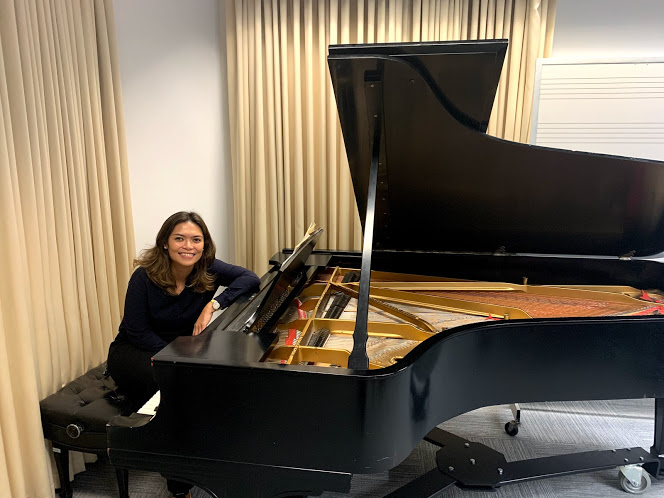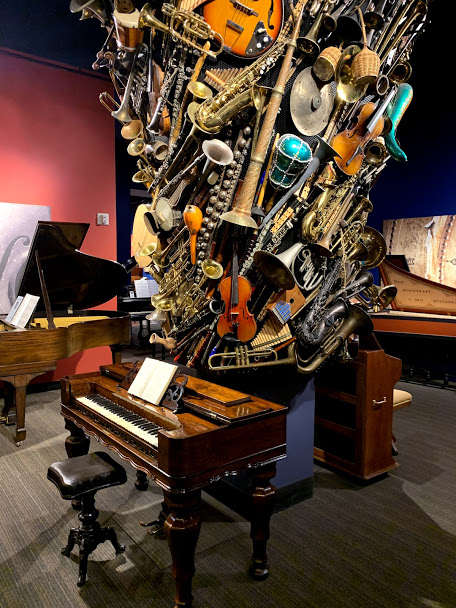I am not a parent. I may not even have kids. But I am surrounded by a lot of young parents now and what I observe concerns me: I do not see enough tough love, of which I am a beneficiary.
I grew up in a typical middle-class Filipino home, with loving parents. They did not have much money, but I never felt deprived. In fact, they went above and beyond and instilled a love for music at an early age, which entailed some investment, and pain on both sides.

I took my first piano lesson when I was five and naturally gravitated to it. This is a welcome sign of a good ROI since my parents had already bought a modest upright piano. At the time, I thought all the kids in my school were into it. I would learn soon enough that I was an outlier. While they played outdoors, I was practicing indoors. I could join them, but only after I finished my scales.
It would seem unfair to immediately judge my folks as tiger parents because they did not demand high grades from me, nor did they expect me to be a concert pianist by the age of 12. Tiger parenting, as popularized by Amy Chua’s 2011 book Battle Hymn of the Tiger Mother, describes an authoritarian home, where parents demand excellence in both the academics and extra-curricular activities from their children. That does not seem to fit with my upbringing exactly because what my parents did was merely provide the environment that would enable me to do both academics and music, and they were not overbearing.
My yaya was more of a tiger parent than the two of them combined. When they were at work, she made sure I practiced and did my homework. Her English was remarkable and she tutored me well. She even made sure that my handwriting in two languages was legible. She did not expect me to get good grades either but insisted that I stand out from the other kids. She was our own Miss Minchin, and I was so scared of her.
So technically, I had three parents, uniform in their tenets and methods of discipline. “You will thank us later,” she kept saying. She was right.
As an adult, I now realize the value of what they had me go through. This grasshopper needed to be exposed to the arts from the comfort of home, at that phase in my life when I could still be bothered by weekend piano lessons after five days of school. I did not have an excuse for my need for play, and that was hard to defend when stacked against music and culture. They always had the best arguments to show why my judgment was flawed. They really knew better.
I kept up with this perceived torture by the trio until I was 12, when I was finally permitted to quit my Sunday piano lessons. I had reached intermediate level 5 when I stopped. At this stage, my command of the black and ivory keys is already indelible in the brain and I could play the harder pieces. I validated this by not playing for a long stretch – no notes would be heard from me from high school to my early 20s unless I sang. I sang well enough that I was invited to form a band in college. I even learned to play the guitar. The basic octaves, flats, and sharps that I learned through piano at five years old were the same building blocks for the other musical instruments I tried. When I played the piano again after a long hiatus, the Chopin Nocturne came out naturally, though poorly executed due to rust.
Today, at 38, I can still play six-minute Beethoven sonatas by heart.
At this age, my music appreciation has become more mature and refined. I have graduated from my grunge phase and have gravitated towards the blues and jazz – a more complex improvisational genre. The technical skill it requires benefits from an understanding of classical foundations. I am deeply grateful for the patience and fortitude of my parents and yaya. If they had been easily swayed by my tantrums, I could have lost the chance to be this flexible which I owe to my classical training.
Assuming I had not been attracted to music as much, would I have found those 7 years spent in classical piano training to be worthwhile? Absolutely. My non-music life turned out okay and I owe that to my ability to focus and process multiple stimuli simultaneously (the musical discipline that encourages this is syncopation – a good percussionist knows this well). There have been many studies that show the ability of music to strengthen body and brain coordination. This is why integrating music in early childhood development is highly encouraged, and why the real Chinese tiger moms are wont to emphasize that in their homes.
These tiger moms also see how the world is much more competitive now, no small thanks to technology. The inherent abilities of music to inculcate discipline and to enhance flow and focus can help children excel in their chosen fields. Music, should that be the chosen field, has also evolved to become more lucrative with technology. It is so ubiquitous, necessary and beautiful that people are now willing to pay for it through streaming and subscription services. Music is also attractive to potential new friends, so if your child is an introvert, it can help boost her confidence and expand her professional and social circles much faster in the future.
My point is, there is nothing to lose and so much to gain when kids learn to make music, especially at an early formative stage.
The next question is, how can parents help their kids get into music?

Love music
You have to love music, or at the very least, try some of it and choose what you like, because your children will listen after you. It cannot be that hard. Music is universal and most people love it. It is everywhere! Movies, elevators, cars, stations – there is no escaping it. Those who don’t only need to find the songs that suit their tastes. The trick here is to listen and to listen often. Elgar’s Nimrod from the Enigma Variations is a good place to start. It is a beautiful masterpiece to enjoy even while your baby is still in the womb.
Do watch out for the lyrics and curate your playlists carefully. You cannot go wrong with classical, the standards by Frank Sinatra, jazz by Ella Fitzgerald or folk by Joni Mitchell, who is a brilliant lyricist. The last thing you want is a curse word to come out of your baby’s mouth.
Listen together
I love bonding over music with my dad. He likes Broadway musicals and had a double-disc OST of Miss Saigon. He listened to that repeatedly, and the melodies energized our home. When I started making money, I bought him a DVD compendium of Andrew Lloyd Weber’s greatest works. He watched that constantly and it was gratifying to see.
Do not give in when the bickerings begin
There will be squabbles, rants, tirades and rebelling. There will be endless frustration and tears that will require a lot of comforting. My childhood was an agonizing dramedy, but it planted a seed, and I think it is a parental sacrifice and test of patience that is worth taking. Then again, I am not a parent, so please test your own mettle first before proceeding.
Rock and roll is great, but…
I love rock and roll, but the rebellious culture it espouses creates problems. I remember having a huge fight with my mom when I started listening to Metallica. She did not understand how someone steeped in classical training can easily transition to metal. Frankly, there is nothing wrong with that. I was just diversifying. She was worried about heavy metal’s image of tattoos, sex, drinking, and drugs. That is a legitimate concern. I think the key here is to immerse children into the side effects of early sex and drugs to discourage them, and there are child-friendly resources for this. As an ob-gyne, she took care of the sex part really well. As for drugs, I remember watching National Geographic’s World’s Most Dangerous Drug documentary and that put a hard stop for me on any attempt to experiment with heavier chemicals.
Trial and error
Musical instruments are expensive, so I would recommend letting kids borrow instruments where they can or let them persuade you how committed they are by being resourceful. Investing in a drum set is the hardest persuasion exercise since it can get loud, requires space and costs a fortune. You have to consider the opportunity costs on your family’s well-being too. Brad Wilk had a tough time convincing his folks because they thought his fascination with the drums wouldn’t last. They caved eventually, and we Rage Against The Machine fans are the better for it.
Bring your children to parks and museums
I do not think there is a museum in the Philippines that specializes in musical instruments, which is quite a shame for a country that is home to Broadway sensation Lea Salonga, Journey’s Arnel Pineda and the lesser-known but equally stellar classical pianist Cecile Licad. But other countries have them. Try to take your family to Disneyworld, a Broadway show, New York’s Carnegie Hall, the Schubert Club Museum of Musical Instruments in St. Paul, Minnesota if you are ever in the midwest, the Royal Albert Hall in London, or La Scala in Italy, all in due time. Music appreciation is like reading a book. If you read War and Peace at 10, you won’t pick up a book ever again. The opera can wait.

Experience live music
While waiting, there should be a talented performer in your city on a weekend that your children might enjoy. And I do not mean the singing Teletubbies at a kid’s birthday party. I mean a singing chorale at church on a Sunday, an acoustic busker at the mall, or a pop band at a neighborhood bar. These live sensory experiences will help your kids appreciate music up close, and may inspire them to try it.
Learn together
The best way to learn is by doing, so it helps that parents try the courses themselves. Strict instructors might be wary of any potential meddling with the pedagogy. But I do not see anything wrong with dabbling in an instrument that interests your child. What I see is empathy, when a parent can grasp how challenging it can be to play the guitar when you have small fingers or an upright bass when you are not so tall. Making music is as much a physical as it is a mental activity. It requires finger dexterity, superb eye and ear coordination, a healthy back that can withstand hours of standing and upper body strength. If parents are aware of what their children go through, it would be easier to know how much time it takes to clean, fix and tune an instrument, adjust family schedules to accommodate rehearsal block times and provide any other form of support the child might need to do well in school and his craft.
Music is an incredible gift to give to the world. Many people can only dream of being able to sing and perform in front of audiences, and I am grateful because I lucked out with my parents. I encourage you to learn from their example. While some do have an extraordinary talent for it, music is foremost a skill that can be learned. Anyone can do it. Once that skill is mastered, feelings flow freely. You can wear a blindfold and still play beautifully. Imagine if more people can create art that way.
Music is for everyone, so let us start them young.

